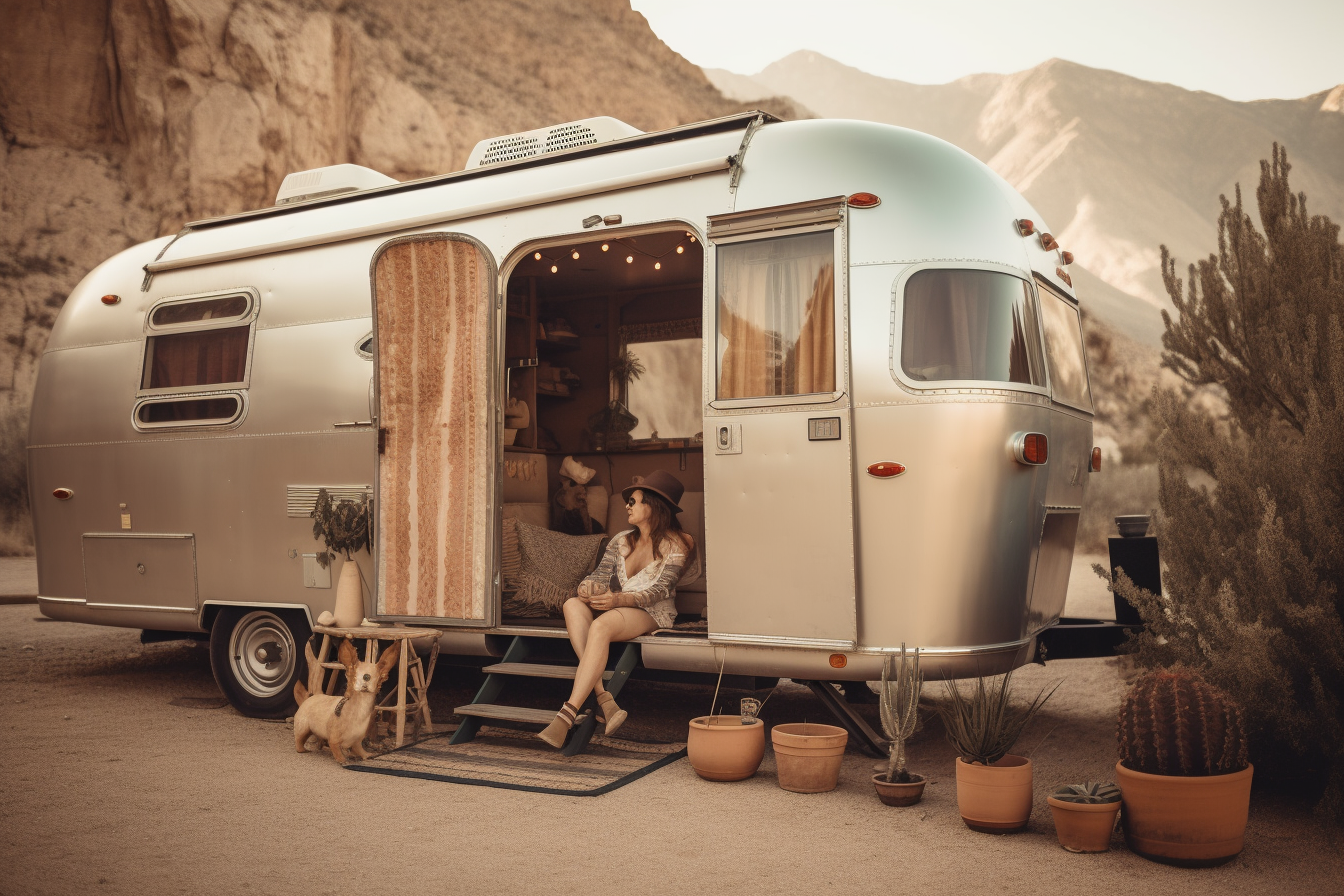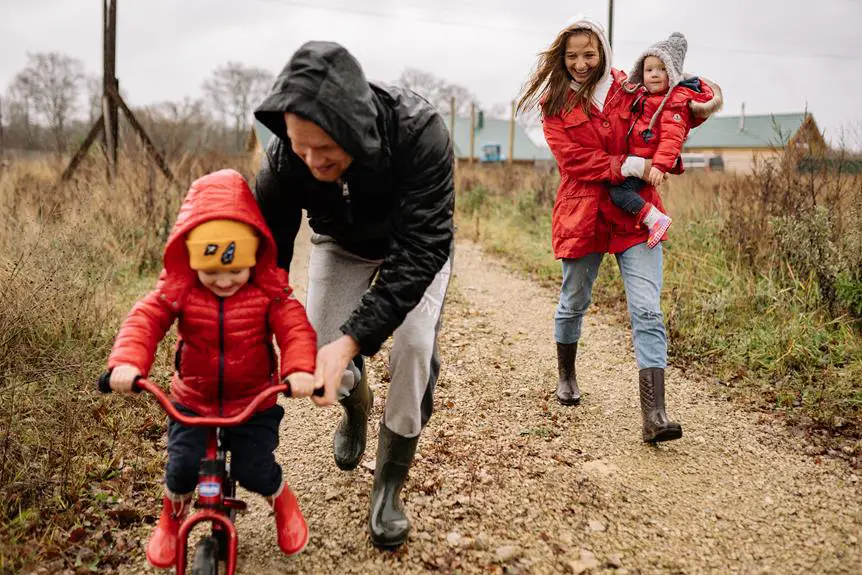Introduction to Full-Time RV Living for Beginners
Full-time RV living for beginners can be an exhilarating experience, offering a unique blend of freedom, adventure, and simplicity. This lifestyle attracts individuals and families desiring to break free from the conventional, seeking a closer connection with nature, and those who wish to explore the vast landscapes and cultures across different regions. The allure of the open road, combined with the comforts of home, makes full-time RV living an increasingly popular choice.
For beginners, the transition from a traditional home to a life on wheels involves careful planning and adjustment. It’s not merely a change of residence, but a complete shift in lifestyle. This introduction aims to provide a comprehensive overview of what it means to live full time in an RV, highlighting the numerous benefits and considerations that come with this unique way of life.
One of the most significant advantages of full-time RV living is the freedom and flexibility it offers. Imagine having the liberty to change your scenery and neighborhood with ease, traveling to new destinations whenever the mood strikes. This nomadic lifestyle allows you to experience diverse environments, from serene beaches to majestic mountains, all while carrying the comforts of your home with you.
However, alongside the excitement and freedom, there are practical aspects to consider. Selecting the right type of RV, understanding maintenance requirements, and managing the financial aspects are critical components of a successful transition. It’s not just about hitting the road; it’s about creating a sustainable, enjoyable lifestyle that meets your needs and preferences.
In the following sections, we will delve into the different types of RVs suitable for full-time living, essential equipment and maintenance tips, legal and financial considerations, maximizing your living space, and much more. Whether you’re a solo adventurer, a couple, or a family, this guide aims to equip you with the knowledge and insights needed to embark on your full-time RV living journey with confidence and enthusiasm.
Key Takeaways
- Flexibility and Preparation: Full-time RV living requires adaptability and careful planning.
- Choice of RV: Selecting the right RV is crucial for a comfortable living experience.
- Budget Management: Effective budgeting is essential for managing the costs of RV full time living.
- Maintenance: Regular maintenance ensures the longevity and safety of your RV.
- Community Engagement: Connecting with the RV community can provide valuable support and enhance your experience.
- Legal and Insurance Matters: Understanding and adhering to legal requirements and having proper insurance coverage are important for a hassle-free journey.
- Embracing the Lifestyle: Full-time RV living offers a unique blend of adventure, simplicity, and personal growth.
Different Types of RVs
There are three Different types of RVs:
- Motorhomes
- Travel Trailers
- Fifth Wheels
When venturing into full-time RV living, one of the first and most crucial decisions is choosing the right type of RV. Each type offers distinct features and challenges, making it essential to understand their differences to select the best fit for your lifestyle.
Motorhomes: The All-in-One Solution
Motorhomes, encompassing Class A, B, and C models, offer a range of sizes and amenities. Class A motorhomes, the largest, provide spacious living areas and luxurious features but can be challenging to maneuver and park. Class B motorhomes, or camper vans, are more compact, ideal for those who value ease of driving and parking over space. Class C motorhomes strike a balance, offering more space than Class B with better maneuverability than Class A.
Travel Trailers: Versatility on Wheels
Travel trailers are towed behind a vehicle, offering flexibility in using the towing vehicle separately. They come in various sizes, from small, lightweight models to larger, more luxurious options. Their detachable nature allows for easy exploration without moving the entire home.
Fifth Wheels: Spacious and Stable
Fifth wheels require a special hitch in the bed of a pickup truck but provide additional stability and space. They often feature split-level designs, creating a home-like feel with distinct living areas.
Alternative Options
Other options like pop-up campers, teardrop trailers, and toy haulers cater to specific needs. Pop-up campers offer a compact, budget-friendly option that expands to provide more space. Teardrop trailers are small and lightweight, perfect for minimalists or weekend warriors. Toy haulers feature a garage area to transport motorcycles, ATVs, or other equipment.
Selecting the right RV involves considering factors like budget, travel style, space requirements, and personal preferences. It’s important to research, visit dealerships, and possibly rent different types before making a decision.
Essential Full Time RV Equipment and Maintenance
Once you’ve chosen your RV, equipping it with essential gear and understanding maintenance is key to a smooth experience.
Must-Have Equipment
- Water Hoses and Sewer Kits for clean water supply and waste disposal.
- Electrical Systems and Solar Panels for power needs.
- RV Batteries and Propane Tanks for energy and heating.
- Leveling Blocks to ensure your RV is stable and level when parked.
- Backup Cameras and GPS Systems for safe maneuvering and navigation.
Maintenance Tips
Regular maintenance is crucial to avoid breakdowns and costly repairs.
- Conduct Regular Inspections Regular maintenance of the RV engine, tires, brakes, and roof is important for a worry-free RV life.
- Keep up with Engine Maintenance and Tire Checks to ensure safe travels.
- Winterize your RV to protect it during colder months.
- Regularly check Plumbing and Electrical Systems.
- Maintain a clean and organized interior to enhance living space.
By being prepared with the right equipment and staying on top of maintenance, you can ensure your full-time RV living experience is as enjoyable and stress-free as possible.
Navigating Legal and Financial Aspects
Transitioning to full-time RV living involves more than just the open road and beautiful landscapes; it also requires navigating the legal and financial aspects of this unique lifestyle.
Legal Considerations
- RV Insurance for full time RV Living: Essential for protection on the road, RV insurance varies based on the type of RV and usage. Ensure you’re adequately covered for both vehicle damage and personal liability.
- Vehicle Registration: RVs must be registered in your state of residence, which can also impact insurance rates and legal requirements.
- Driver’s License Requirements: Depending on the RV size, a special license might be required. Check your state’s regulations.
- Road Laws and Parking Regulations: Familiarize yourself with RV-specific road laws, including height and weight restrictions, and understand parking regulations, especially for overnight stays.
- Zoning Laws and Campground Rules: Be aware of local zoning laws affecting RV parking and adhere to specific campground rules.
Financial Planning
- Budgeting: Develop a detailed budget that includes gas, maintenance, insurance, campground fees, and living expenses. Full-time RV living can be cost-effective but requires careful financial planning.
- RV Loan Financing: If purchasing an RV through financing, consider the loan terms, interest rates, and your ability to make payments over time.
- Managing Expenses: Track your expenses and find ways to save, such as staying longer in one place to reduce fuel costs or choosing campgrounds that offer value for money.
- Emergency Funds: Always have a reserve fund for unexpected repairs or emergencies.
Understanding and managing these legal and financial aspects is crucial for a stress-free full-time RV lifestyle.
Maximizing Your Living Space
Living full-time in an RV means making the most out of a smaller space. Effective use of space and storage can make RV living comfortable and enjoyable.
Space Optimization
- Utilize Space-Saving Furniture like foldable tables and convertible sofas.
- Implement Wall-Mounted Solutions for items like TVs, fold-down desks, or storage cabinets.
- Organizational Accessories such as hanging organizers, stackable bins, and drawer dividers can help keep your belongings orderly.
Storage Solutions
- External Storage Solutions such as cargo carriers and bike racks can free up interior space.
- Utilize Built-in Storage areas efficiently, using vacuum-sealed bags for clothing and stackable containers for kitchen items.
- Under-Bed Storage and Closet Organizers are great for maximizing bedroom space.
Living Comfortably
- Embrace Minimalism: Full-time RV living is easier with fewer belongings. Prioritize items that are necessary and multifunctional.
- Declutter Regularly: Keeping your space tidy not only makes it more livable but also reduces stress.
- Personalize Your Space: Add personal touches with decor, photos, or plants to make your RV feel like home.
Maximizing your living space during full time RV living requires creativity and organization. By making smart use of space, you can create a comfortable and functional home on wheels.
Staying Connected: Technology in RV Living
In today’s connected world, maintaining access to technology is vital, even while living on the road. Full-time RVers need reliable solutions to stay connected, both for practical purposes and for entertainment.
Internet and Connectivity
- Mobile Internet Solutions: Utilize mobile hotspots, data plans, and satellite internet to stay connected. Research plans that offer the best coverage and data limits for your travel areas.
- Wi-Fi Extenders and Cell Phone Boosters: Enhance signal strength in remote locations, ensuring consistent internet and cell phone connectivity.
- Smart Home Devices: Incorporate devices like smart thermostats, security cameras, and lighting systems that can be controlled remotely for convenience and safety.
Technology for Comfort and Safety
- GPS Navigation for RVing: Essential for route planning and finding campgrounds or services.
- Backup Cameras: Improve safety when reversing or parking your RV.
- Emergency Communication Devices: Satellite phones or emergency beacons are crucial for staying connected in areas with no cell service.
Balancing Digital and Outdoor Life
- While technology is important, it’s also essential to balance screen time with outdoor activities. Set aside time to disconnect and enjoy your RV life in natural surroundings, fostering a healthy balance between technology use and outdoor exploration.
Health, Safety, and RV Living
Living on the road brings unique health and safety considerations. Being prepared and proactive can ensure a safe and healthy RV lifestyle.
Essential Health and Safety Tips
- First Aid Kits for Full Time RV Living: Keep a well-stocked first aid kit for minor injuries or illnesses.
- Fire Safety: Equip your RV with fire extinguishers, smoke detectors, and carbon monoxide detectors. Regularly check and maintain these devices.
- Personal Safety Devices: Consider carrying items like pepper spray or a personal alarm, especially when traveling in remote areas.
Preparing for Emergencies
- Food and Water Safety: Ensure you have access to clean water during your full time RV living, either through onboard filtration systems or by carrying bottled water. Store food properly to prevent spoilage.
- Weather Awareness: Stay informed about weather conditions and have a plan for severe weather, including knowing the location of shelters or safe areas.
- Emergency Exits: Familiarize yourself with your RV’s emergency exits and practice evacuation procedures.
Maintaining a Healthy Lifestyle
- Regular Exercise: Incorporate physical activity into your daily routine, whether it’s hiking, biking, or yoga.
- Healthy Eating: Plan and prepare balanced meals, utilizing local produce and ingredients when possible.
- Mental Well-being: Take care of your mental health by staying connected with loved ones, pursuing hobbies, and taking time for relaxation and meditation.
Planning Your RV Travel Adventures
Planning is a crucial part of full-time RV living, ensuring that your travels are enjoyable and stress-free.
Effective Route Planning
- Use apps and websites dedicated to RV travel to plan routes that are RV-friendly, avoiding roads with height or weight restrictions.
- Consider the distance between stops to avoid fatigue and ensure you have enough time to explore each destination.
Campground Research, Reservations, and Boondocking
- Research campgrounds in advance, considering amenities, location, and reviews from other RVers.
- Make reservations ahead of time, especially during peak seasons or for popular destinations.
Incorporating Local Attractions and Events
- Plan visits to local attractions, national parks, and events to enrich your travel experience.
- Be flexible with your plans while living in an RV full time, allowing for spontaneous adventures or changes based on local recommendations or climate conditions.
Planning your travels carefully can lead to unforgettable experiences and a deeper appreciation for the places you visit.
Building Community and Social Life
While full-time RV living offers freedom and adventure, it also presents unique opportunities to build community and enjoy a rich social life. Staying connected and engaged with others is an integral part of this lifestyle.
Engaging with the RV Community
- RV Clubs and Online Forums: Join RV clubs or online communities to connect with fellow RV enthusiasts. These platforms are great for sharing tips, seeking advice, and making friends with similar interests.
- RV Life Meetups and Rallies: Attend RV meetups, rallies, and events to meet other RVers in person. These gatherings are not only fun but also offer opportunities to learn from experienced travelers.
- Social Media Groups: Engage with social media groups dedicated to RV living. These groups can provide support, travel inspiration, and a sense of belonging.
Balancing Solitude and Social Interactions
- Full-time RV living often involves a mix of solitude and social interactions. Embrace the quiet times for personal reflection and relaxation, while also seeking out social opportunities to stay connected.
Community Involvement
- Volunteering Opportunities: Participate in local volunteering activities as you travel. This can be a rewarding way to give back and connect with local communities.
- Travel Blogs and Podcasts: Share your experiences through a blog or podcast. This can be a way to document your journey and connect with a wider audience interested in RV living.
Embracing the RV Lifestyle: Tips and Tricks
Living full-time in an RV is not just a way of travel; it’s a lifestyle choice that comes with its own set of challenges and rewards.
Adapting to Challenges
- Flexibility: Be prepared for unexpected situations and be flexible in your plans. Adaptability is key to enjoying a full time RV lifestyle to its fullest.
- RV Life RV Life Learning Curve: Embrace the learning process of RVing. Whether it’s mastering the art of driving a large vehicle or troubleshooting maintenance issues, view each challenge as an opportunity to grow.
Learning from Experienced RVers
- Seek advice from experienced RVers. They can offer valuable insights and tips to help you navigate the intricacies of RV living.
Enjoying the Journey
- Remember, the journey is as important as the destination. Take time to enjoy the small moments and the freedom that RV living provides.
Conclusion: Embarking on Your RV Adventure
As we conclude this guide to full-time RV living for beginners, it’s important to reflect on what this lifestyle entails. It’s a journey marked by freedom, adventure, and the opportunity to explore and connect with the world in a unique way. While there are challenges and adjustments, the rewards of this lifestyle are plentiful. Whether you seek the tranquility of remote natural landscapes or the excitement of new cities and communities, full-time RV living offers something for everyone.
For those considering this lifestyle, it’s a path that requires preparation, flexibility, and an adventurous spirit. But for those who take the leap, it’s a journey that can lead to unparalleled experiences and personal growth. As you embark on your RV adventure, carry with you the knowledge, tips, and insights shared in this guide, and most importantly, embrace the journey with an open heart and an eager spirit.
FAQ: Full-Time RV Living for Beginners
What are the best types of RVs for beginners?
The best RV type depends on your needs and lifestyle. Class C motorhomes offer a good balance of space and maneuverability, making them a popular choice for beginners. Travel trailers are also a great option for those who prefer a separate vehicle to drive.
How much does it cost to live full-time in an RV?
The cost varies based on factors like the type of RV, travel style, and personal expenses. On average, it can range from $1,500 to $3,000 per month, including campground fees, fuel, maintenance, and living expenses.
Do I need special insurance for full-time RV living?
Yes, full-time RVers need a specific type of RV insurance that covers not only the vehicle but also personal belongings and liability, similar to homeowners’ insurance.
What are the essential items I need for RV living?
Essential items include a reliable water hose, sewer kit, RV batteries, leveling blocks, navigation tools, and a first-aid kit. Also, consider items for personal comfort and space optimization.
How do I maintain my RV?
Regular maintenance includes checking and servicing the engine, tires, brakes, and batteries, as well as inspecting the roof and exterior for leaks or damage. Interior maintenance is also important for a comfortable living space.
Can I live in an RV with kids or pets?
Absolutely. Many families live full-time in RVs with children and pets. It requires additional planning for schooling, space, and pet needs, but it can be a rewarding family experience.
How do I stay connected to the internet while on the road?
Options include mobile hotspots, satellite internet, and campground Wi-Fi with a Wi-Fi extender. Plan your data needs according to your work and entertainment requirements.
What should I know about legal requirements for RV living?
Be aware of vehicle registration, driver’s license requirements for your RV type, insurance laws, and campground and road rules in the areas you’ll be traveling through.
Is it possible to work remotely while living in an RV?
Yes, many full-time RVers work remotely. Ensuring reliable internet connectivity and setting up a comfortable workspace in your RV are key to successfully working on the road.
What are some tips for adapting to full-time RV living?
Start by simplifying your belongings, plan your budget carefully, learn basic RV maintenance, and be prepared for a flexible lifestyle. Engaging with the RV community for support and advice is also helpful.



